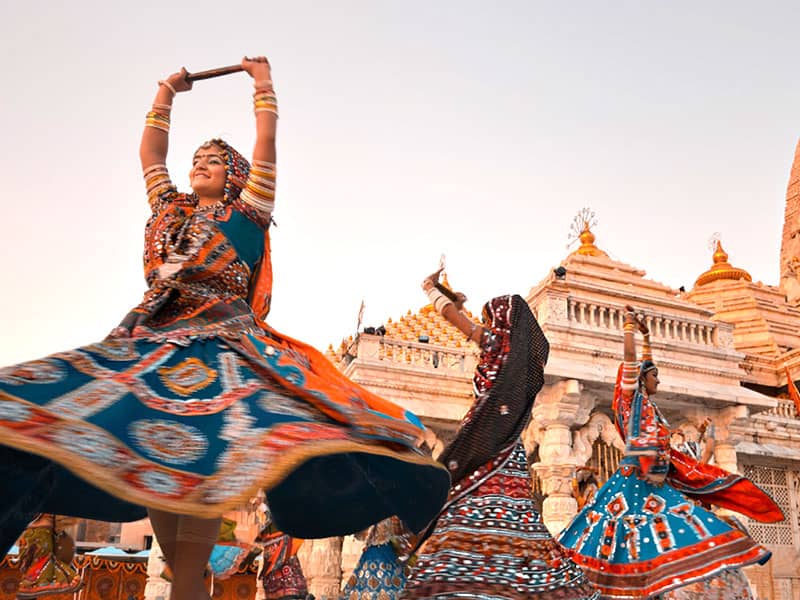I thought for a moment, and told her what my own mother had told me when I was afraid of the dark as a child. "Think of Hanuman," my mother always said. "He will protect you." (Hanuman is Hinduism's Monkey-God, known for his strength and benevolence.) With that, she taught me a sloka (chant) that I could repeat whenever I was afraid. I taught Ranjini the same four lines and told her to repeat them before she went to sleep to ward off bad dreams.
It seems to work. It's not that my daughter has never been afraid again. But she now has a method for dealing with her fear. Oftentimes, when I put her to bed, she will say in a small voice, "Mom, let's say Manojavam together," and we begin the chant. Hanuman had, in a sense, become my daughter's guardian angel. He protected her and soothed her fears when she was afraid.
While angels play a strong role in Judaism, Christianity, and Islam, there are no angel-like figures in Hinduism. Rather, Hindus look to an array of Gods, minor Gods (devas), planets like Sani (Saturn), gurus (teachers), and ancestors, all of whom can play a protective role during times of crisis or stress: during illness, in the face of physical danger, or when taking a test, trying for a promotion at work, or improving a relationship.
Many Hindus have favorite Gods and Goddesses or Ishta Devatas, whom they call upon to help, guide and protect them. When Hindus face unexplainable hurdles in life, they might typically ask their astrologer to examine their horoscope and appease the various planets. I still recall my brother wearing a black amulet as a child because my parents wanted the planet Sani (Saturn) to protect him. Sani held a strong position in my brother's horoscope and was therefore called on to guard him.
For children, the playful God Krishna or the Monkey-God Hanuman are easy to relate to. Hanuman in particular is a favorite protector. A story that is told often about Hanuman relates to Lord Rama's battle against the evil king Ravana. When Rama's brother, Lakshmana, fell unconscious in the battlefield, a doctor was summoned. After examining Lakshmana, the physician asked for the Sanjeevini herb, which would instantly cure the wounded warrior.
Because he was the strongest of the beings there on the battlefield, Hanuman was asked to fly to the faraway mountain and procure the herb. When Hanuman landed on the mountain, he faced a bewildering array of herbs, all of which looked alike to him. Realizing that time was of the essence, he uprooted the entire mountain and carried it back to the battlefield. The physician plucked out the herb, Lakshmana was cured, and Rama's battle against the evil king, Ravana, continued.
Similarly, Krishna is called upon very often in times of crisis because of the role he plays in Hindu mythology as a savant and protector. The Bhagavad Gita, arguably Hinduism's most famous religious text, came from Krishna. In the Mahabharata, one of Hinduism's most famous epics, Krishna protects Queen Draupadi from being disrobed by the evil Dushasana in court. As Dushasana pulls her sari, Draupadi calls "Krishna," and lo and behold, the sari grows endless. As Dushasan futilely pulls, the sari grows and Draupadi's modesty is saved. This is another story I frequently tell my daughter mostly because she related easily to Krishna. Unlike stereotypical Gods, Krishna is not perfect. As a child, he used to steal butter and play tricks on his mother and father. But he also holds the Sudarshana chakra, a flying discus that, as I tell my daughter, "will protect you from that bully in the playground" or whatever that day's crisis might be.
As a practicing Hindu, I believe that such protective figures are especially important after September 11th. They provide children with a certain amount of psychological comfort. If nothing else, calling on angels and Gods gives children, and indeed adults, a weapon against the obstacles that life throws in our paths. Now, more than ever, we need such amulets, armors and mythological weapons.

